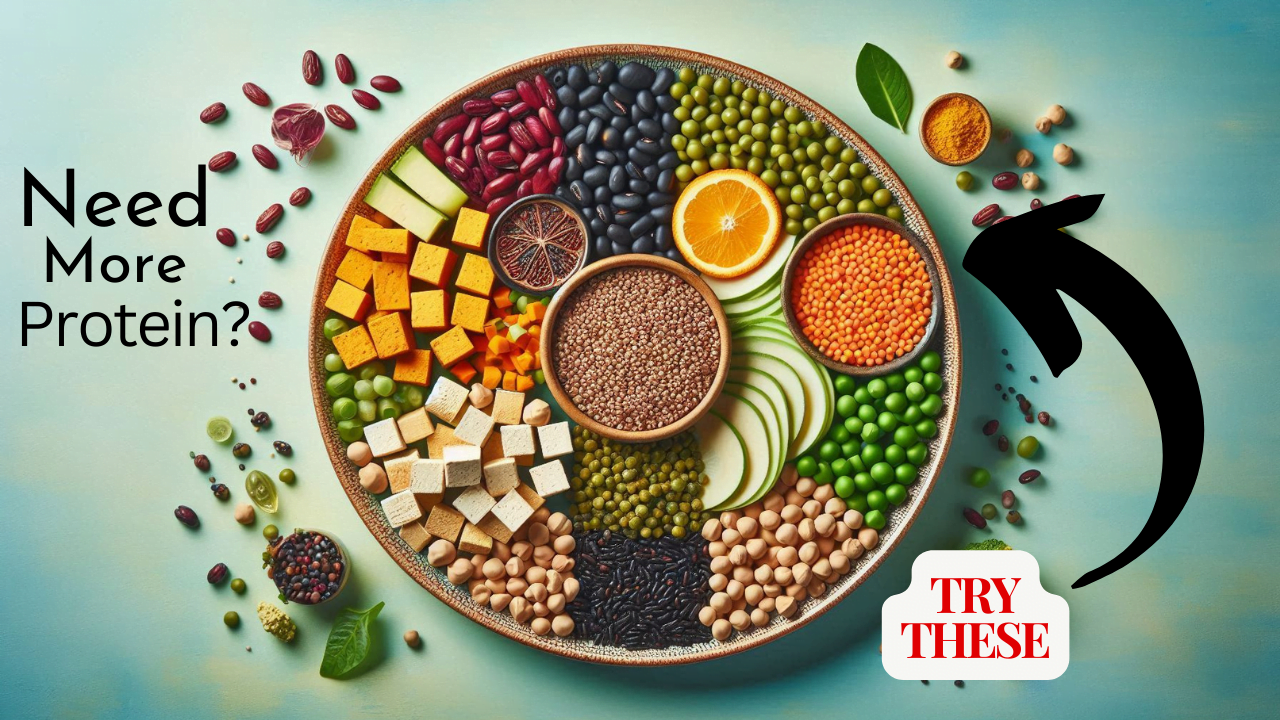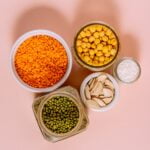
Protein is a crucial macronutrient that plays a vital role in building and repairing tissues, producing enzymes and hormones, and supporting overall health. While animal products are often associated with protein intake, many plant-based foods are rich in protein and provide additional health benefits. For those following a vegetarian or vegan diet, or simply looking to reduce their meat consumption, understanding the best plant-based protein sources is essential.
This article will explore various plant-based protein sources, their nutritional benefits, and how to incorporate them into your diet.
1. Legumes
Lentils
Lentils are a versatile and nutrient-dense legume that come in various colors, including green, brown, and red. They are an excellent source of protein, providing about 18 grams per cooked cup. Lentils are also high in fiber, iron, and folate, making them a great addition to a balanced diet. They can be used in soups, stews, salads, and even veggie burgers.
Chickpeas
Chickpeas, or garbanzo beans, are another protein-rich legume, offering around 15 grams of protein per cooked cup. They are also high in fiber, vitamins, and minerals such as manganese and folate. Chickpeas can be used in various dishes, including hummus, salads, curries, and roasted snacks.
Black Beans
Black beans are a staple in many cuisines and provide approximately 15 grams of protein per cooked cup. They are also rich in fiber, iron, magnesium, and antioxidants. Black beans can be used in soups, burritos, salads, and veggie burgers.
2. Nuts and Seeds
Almonds
Almonds are a popular nut that provides around 6 grams of protein per ounce (about 23 almonds). They are also a good source of healthy fats, fiber, vitamin E, and magnesium. Almonds can be eaten raw, roasted, or used in almond butter, almond milk, and various recipes.
Chia Seeds
Chia seeds are tiny but mighty, offering about 4 grams of protein per ounce (about 2 tablespoons). They are also high in fiber, omega-3 fatty acids, and various micronutrients. Chia seeds can be added to smoothies, oatmeal, yogurt, and used to make chia pudding.
Hemp Seeds
Hemp seeds are a complete protein source, providing all nine essential amino acids. They offer about 10 grams of protein per ounce (about 3 tablespoons). Hemp seeds are also rich in healthy fats, fiber, and minerals such as magnesium and zinc. They can be sprinkled on salads, smoothies, and yogurt, or used in baking.

Pumpkin Seeds
Pumpkin seeds, or pepitas, provide approximately 7 grams of protein per ounce. They are also rich in healthy fats, fiber, magnesium, and antioxidants. Pumpkin seeds can be eaten raw, roasted, or added to salads, granola, and baked goods.
3. Whole Grains
Quinoa
Quinoa is a unique grain because it is a complete protein, containing all nine essential amino acids. It provides about 8 grams of protein per cooked cup. Quinoa is also high in fiber, iron, magnesium, and various antioxidants. It can be used in salads, bowls, soups, and as a rice substitute.
Amaranth
Amaranth is another protein-rich ancient grain, offering about 9 grams of protein per cooked cup. It is also high in fiber, iron, magnesium, and manganese. Amaranth can be used in porridge, salads, and baking.
Farro
Farro is an ancient wheat grain that provides approximately 6 grams of protein per cooked cup. It is also rich in fiber, iron, magnesium, and B vitamins. Farro can be used in salads, soups, and as a side dish.
4. Soy Products
Tofu
Tofu, also known as bean curd, is made from soybeans and is a versatile protein source. It provides about 10 grams of protein per half-cup serving. Tofu is also a good source of calcium, iron, and magnesium. It can be used in stir-fries, soups, salads, and even desserts.
Tempeh
Tempeh is a fermented soy product that offers about 21 grams of protein per 3-ounce serving. It is also rich in probiotics, fiber, and various micronutrients. Tempeh has a firm texture and a nutty flavor, making it suitable for stir-fries, sandwiches, and salads.
Edamame
Edamame are young, green soybeans that provide around 17 grams of protein per cooked cup. They are also high in fiber, vitamins, and minerals such as folate and vitamin K. Edamame can be eaten as a snack, added to salads, or used in stir-fries.
5. Vegetables
Spinach
Spinach is a leafy green vegetable that provides about 5 grams of protein per cooked cup. It is also high in vitamins A, C, and K, as well as iron, calcium, and antioxidants. Spinach can be used in salads, smoothies, soups, and sautéed dishes.
Broccoli
Broccoli is a cruciferous vegetable that offers approximately 4 grams of protein per cooked cup. It is also rich in fiber, vitamins C and K, and various antioxidants. Broccoli can be steamed, roasted, added to stir-fries, or used in salads.
Brussels Sprouts
Brussels sprouts are another cruciferous vegetable, providing about 4 grams of protein per cooked cup. They are also high in fiber, vitamins C and K, and antioxidants. Brussels sprouts can be roasted, steamed, or sautéed as a side dish or added to salads.
6. Pseudocereals
Buckwheat
Buckwheat is a gluten-free pseudocereal that offers around 6 grams of protein per cooked cup. It is also high in fiber, magnesium, and antioxidants. Buckwheat can be used in porridge, pancakes, salads, and as a rice substitute.
Millet
Millet is another gluten-free pseudocereal, providing about 6 grams of protein per cooked cup. It is also rich in fiber, magnesium, and antioxidants. Millet can be used in porridge, salads, and baking.
7. Plant-Based Protein Powders
Pea Protein
Pea protein powder is made from yellow peas and provides around 20-25 grams of protein per serving. It is also high in iron and easy to digest. Pea protein can be added to smoothies, shakes, and baking.
Rice Protein
Rice protein powder is made from brown rice and offers about 15-20 grams of protein per serving. It is also hypoallergenic and easy to digest. Rice protein can be used in smoothies, shakes, and baking.
Hemp Protein
Hemp protein powder is made from hemp seeds and provides around 15-20 grams of protein per serving. It is also high in fiber, omega-3 fatty acids, and various micronutrients. Hemp protein can be added to smoothies, shakes, and baking.
Takeaway
Incorporating plant-based protein sources into your diet is not only beneficial for your health but also for the environment. The wide variety of legumes, nuts, seeds, whole grains, soy products, vegetables, pseudocereals, and plant-based protein powders ensures that you can meet your protein needs while enjoying diverse and delicious meals.
Whether you are a vegetarian, vegan, or simply looking to add more plant-based foods to your diet, these protein sources provide essential nutrients and health benefits. By exploring and experimenting with different plant-based proteins, you can create satisfying and nutritious meals that support your overall well-being.
Video: Top Plant-Based Protein Sources
Lance has been passionate about the plant-based diet and we have been following a whole food plant-based diet for over 5 years. We focus on health, natural healing, weight management, animal rights, and the health of the planet and environment by focusing on whole plant-based foods and sustainable practices.
Learn more at the About Me page and follow on social media at the links below.





